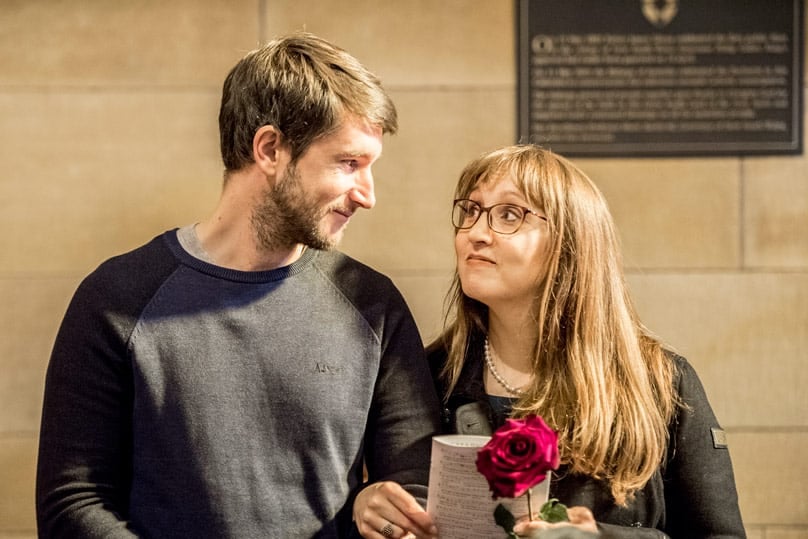
Last week’s celebration of Australia Day occurred again amidst the annual “change the date” debate. While there are passionate and reasonable arguments on both “sides” of this discussion, it is not something I have ever really considered because my family always celebrates Australia Day for two key reasons. The first is because Australia has provided our family of Lebanese immigrants opportunities my grandparents could not have imagined were possible, let alone achievable. The second is that Australia Day also happens to be the wedding anniversary of my parents, who celebrated 50 years of marriage this year. Even if our national day is changed in the future, the Doumits will always mark 26 January as special.
A lot has changed since my parents were married in 1974. Their wedding was a year before the Family Law Act was passed. That act introduced “no fault divorce,” treating marriage more as a contractual arrangement that could be exited at any time without cause than a vowed, lifelong commitment. This change in the legal conception of marriage and its permanence has been formative for the culture. In just two generations, 30 per cent of marriages now end in divorce.
My parents were also married at a time when marriage itself was more popular. Back in the 1970s, marriage was at its peak, with around nine marriages each year for every 1000 people in Australia. This rate has fallen steadily since then, with the marriage rate now around six marriages for every 1000 Aussies. If we add the divorce rate of 2.4 divorces for every 1000 Australians to the mix, we are only netting 3.7 marriages per 1000 people in this country each year.
Civitas, a UK-based think-tank, remarked in a 2022 paper that if marriage continues to decline at the same linear rate in the UK, there will be nearly no new marriages at all in the UK by the year 2062. They acknowledge it’s an “extreme and unlikely interpretation of the data” and suggest that instead it might bottom out in 2062 at a “grim but somewhat more realistic” 5.2 out of every 1000 from its 1972 UK peak of 74 per 1000. Given Australia’s average marriage rate over the last 20 years is already sitting at 5.2, there’s every chance Civitas’ “grim” prediction will be shown in retrospect to have been optimistic. That’s a very big deal.
Marriage in western, developed nations today is pretty much unrecognisable from what it was on 26 January 1974 when my parents were married. In another 50 years, marriage—and lifelong marriage in particular—will be something even more out of the ordinary than it is today.
If a marriage culture disappears from Australia in the next couple of generations, we will be relying on the witness of the lives of people like my parents to proclaim the goodness and the importance of marriage. They stayed together in good times and in difficult times. They know that true love is less about the warm-and-fuzzy feelings than it is about keeping your commitments when the warm-and-fuzzies have faded. They brought children into the world and gave us the most important gift of faith. They saved and sacrificed so that we would have opportunities unavailable to them and their parents. It was undoubtedly difficult, but they persevered because they knew it was the right thing to do.
As important as the witness of my parents is, even more important is the witness of young couples today just starting out on the journey of their married life. As our society spirals further into its confusion not only about marriage and relationships but also about sex and gender and what it means to be male and female, equal yet complementary, it is today’s young couples who will need to model for their children and grandchildren, friends and family, co-workers and acquaintances what all this means.
They will be like the monks in the Dark Ages who preserved the libraries from destruction so that when the period of persecution was over, the knowledge of centuries past would not be lost forever. As a church especially, it will be our solemn obligation to encourage and nurture the vocation to married life, to throw as many resources and supports as possible behind it, because in many ways, the vocation to marriage is now just as countercultural as the vocation to celibate priesthood. Happy anniversary, mum and dad. Thanks for your daily “yes.”
